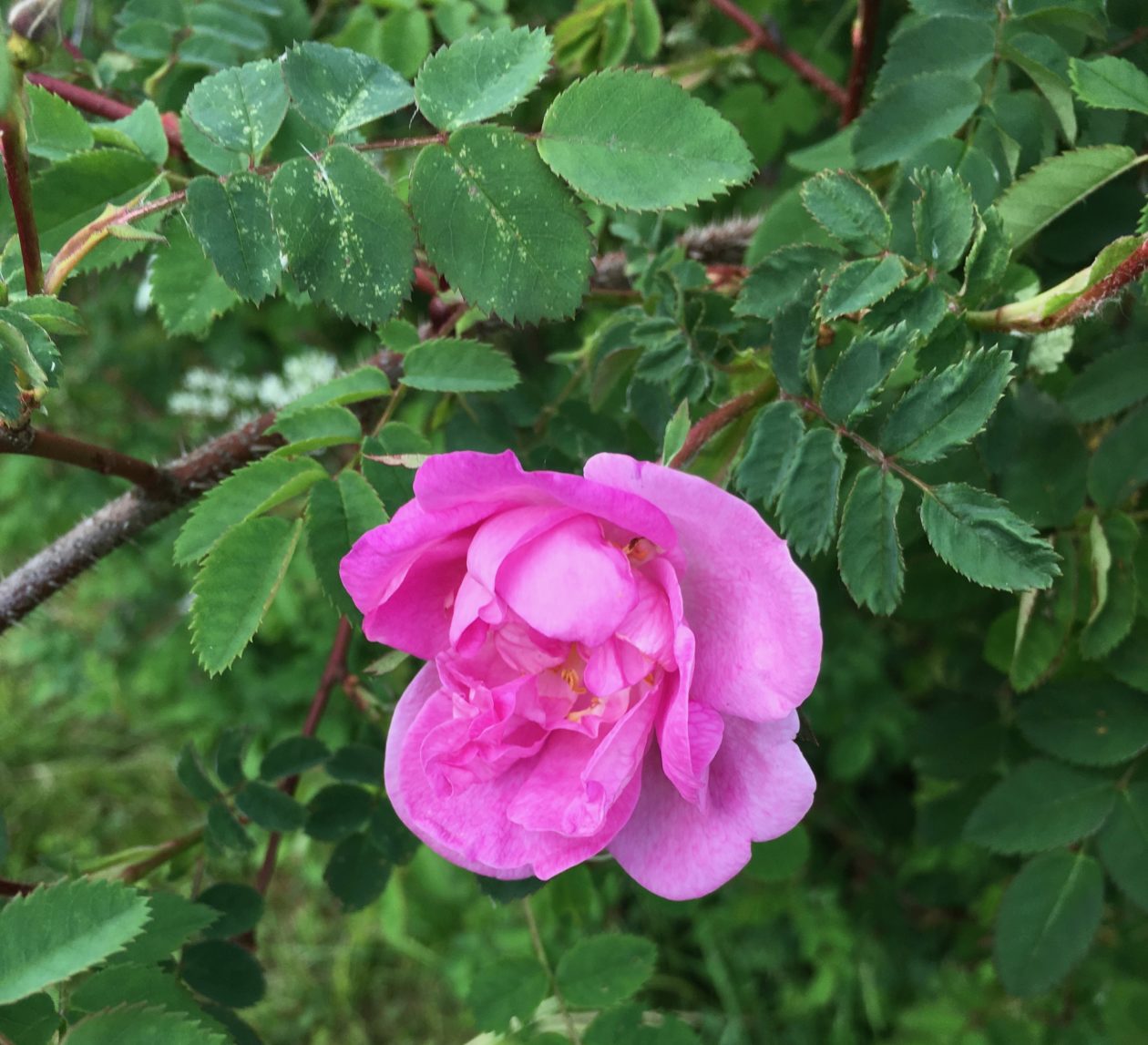I have to reflect a little about the current practise of writing to ”prompts”. Since haiku ideally is a reacton to some nature experience, prompts are in a way ”made up” experience. As long as they touch some actual experience I just go there and look, I can also take some experience from my long life and write about that. But if I have to go to Google and see what is meant by the word, it is difficult to write from any kind of experience. Recently I have struggled with words as ”gardenia” (never met such flowers in other places than in flower shops), ”typhon” (lucky enough to see them only on TV) or ”blue moon” (?). I could easily relate to a prompt as ”elephant” from my childhood visits to some Zoo and the frog jumping into the pond I could with some extra thoughts relate to the small frogs I see jumping on my gravel path. So, most prompts require some extra work in order to relate to something I have seen on Television, some memory or something artificial. I wonder what effect this has on haiku writing?
I put this reflection on the Facebook group: sharing haiku knowledge.
And immediately got an answer from Alan Summers:
Haiku evolved out of hokku which itself evolved out of linked poetry where each stanza was written by a different poet. This linked poetry form is called renga and is based, crudely speaking, on prompts. A lot of renga verses were fictitious and often fantastical so Basho came along with renku. To see ’modern’ renku check out: https://thehaikufoundation.org/the-renku-sessions-way-of…/
So, thoughts move on … So many thoughts for such a small topic – what do we miss from the great topics?
By the way, the accompanying picture is NOT from a prompt. It is taken from my frantic watercolour painting period. By somebody it was called a haiku, I don’t know why.



